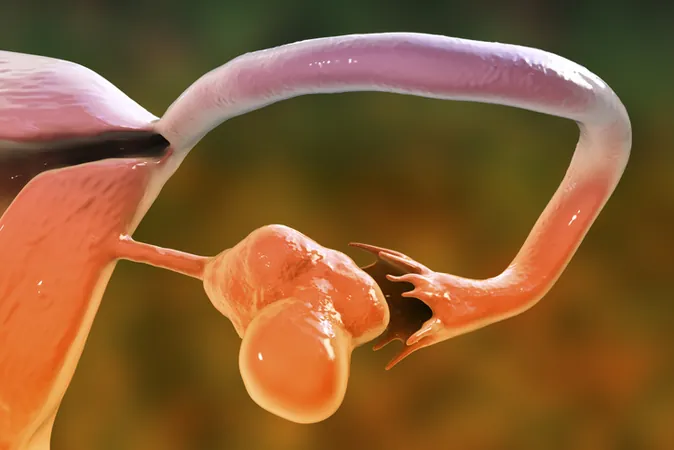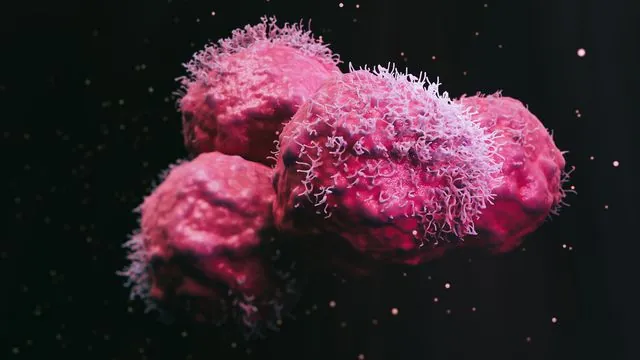
Uncovering the Genetic Secrets: How Rare Variants Influence Menopause and Cancer Risks
2024-09-17
Introduction
Recent groundbreaking research has unveiled that certain rare genetic variants could significantly alter the timing of menopause, showing up to five times greater impact compared to more commonly studied variants. This study, conducted by a team from the UK and published in the prestigious journal *Nature*, highlights specific variants such as ETAA1, ZNF518A, PNPLA8, PALB2, and SAMHD1.
Key Findings
Delving deeper, the research illustrated that damaging germline variants of SAMHD1 are linked to both a longer reproductive lifespan and an escalated risk of all-cause cancer for both genders. Notably, protein-truncating variants in ZNF518A were correlated with an earlier onset of menopause—averaging a striking 5.61 years earlier—and later onset of menarche, which pushes the average age by 0.56 years. These findings emphasize the critical role genetics plays in female reproductive health.
Research Methodology
Utilizing data from the extensive UK Biobank, which included 106,973 post-menopausal women of European descent, the researchers employed Whole Exome Sequencing and individual gene burden tests across approximately 17,475 protein-coding genes. They differentiated rare exome variants into three groups: high-confidence protein-truncating variants, damaging missense variants, and a combination of both.
Broader Implications
In the broader context, the timing of menopause holds immense implications for fertility and long-term health. To date, researchers have identified around 300 genomic loci linked to menopause timing through genome-wide association studies (GWAS). Noteworthy associations emerged for genes like CHEK2, BRCA2, and CLPB. Collectively, known genetic variants account for 38% of the heritability of single nucleotide polymorphisms and an estimated 12% variance in the age of natural menopause.
Variability in Reproductive Longevity
The study underscores the significant variability in reproductive longevity among women, which can profoundly influence fertility and future health outcomes. Women are born with a finite number of oocytes, diminishing over time until menopause arrives. Natural fertility typically begins to decline about a decade prior to menopause, emphasizing the urgency for family planning as many individuals opt to have children later in life, particularly in Western societies.
Health Risks of Early Menopause
The implications of early menopause stretch well beyond fertility; they are intricately linked to a host of diseases, including type 2 diabetes, cancer, and osteoporosis. As studies continue to unravel the complex interplay of genetic and environmental factors affecting menopause timing, it is becoming increasingly clear that over two-thirds of the GWAS signals identified involve genes that influence DNA damage responses—an alarming indicator of the susceptibility of oocytes to DNA damage over a woman's life span.
Conclusion
In a world where the quest for timely parenthood and healthy aging is paramount, this research not only sheds light on genetic influences but also ignites a discussion on the necessity for awareness and potential interventions for women facing the perils of early menopause and associated health risks. Such findings hold tantalizing promise for future genetic screenings that could guide reproductive choices and health management strategies.


 Brasil (PT)
Brasil (PT)
 Canada (EN)
Canada (EN)
 Chile (ES)
Chile (ES)
 España (ES)
España (ES)
 France (FR)
France (FR)
 Hong Kong (EN)
Hong Kong (EN)
 Italia (IT)
Italia (IT)
 日本 (JA)
日本 (JA)
 Magyarország (HU)
Magyarország (HU)
 Norge (NO)
Norge (NO)
 Polska (PL)
Polska (PL)
 Schweiz (DE)
Schweiz (DE)
 Singapore (EN)
Singapore (EN)
 Sverige (SV)
Sverige (SV)
 Suomi (FI)
Suomi (FI)
 Türkiye (TR)
Türkiye (TR)